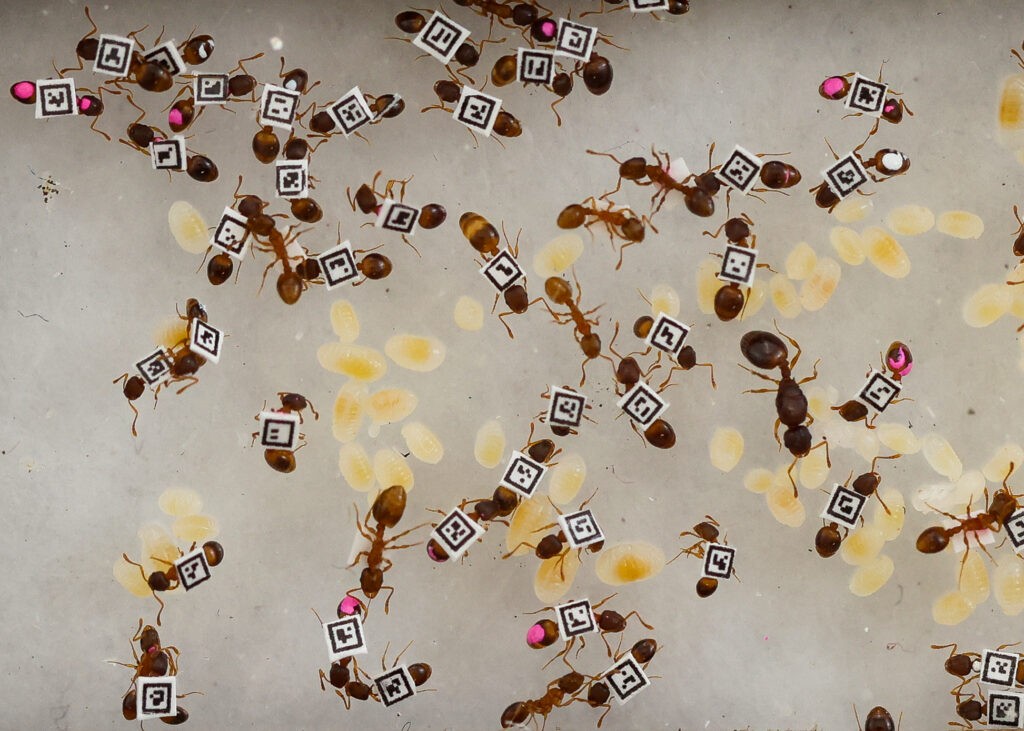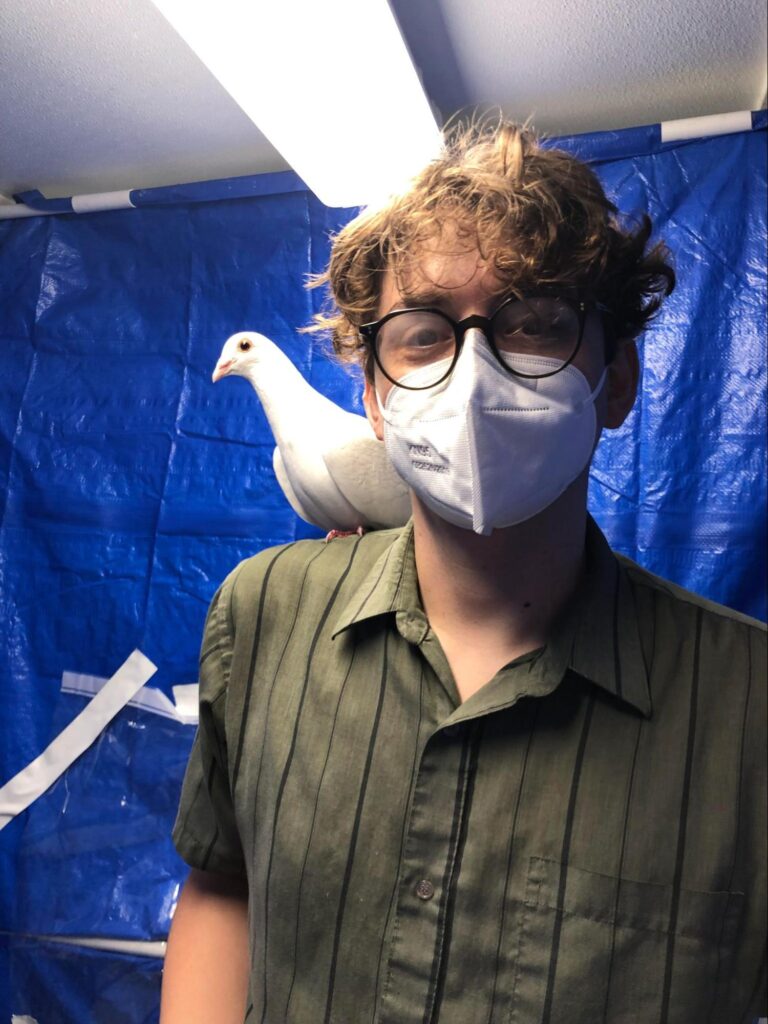Ben Taylor was an ecology major at UGA, but he wasn’t sure what he wanted to do with his degree. That changed when he went on a Maymester course to Sapelo Island, which Associate Professor Richard Hall joined. Hall shared about his work and motivations on the trip.
“Understanding his relationship with conservation biology, how he applies it and why he does it was a big inspiration for me. I thought, ‘Science does matter, and this is cool,’” said Taylor (AB ’17, MS ’23).
It was a turning point.
“I started getting more and more interested in things like, ‘How am I going to do this as a job? How am I going to communicate science?’” explained Taylor.
He found a temporary answer—Odum was looking for someone to pitch in with an upcoming Alumni Day, and Taylor landed the job. Reading up on alumni careers and research heightened his interest in the field.
“I was overwhelmed by how much they had done, and how little I understood of the science. I started educating myself a little more and got super into programming and learning more about how to communicate science,” said Taylor.
When a subsequent part-time web developer and designer role opened, it dovetailed perfectly with his growing interest in communicating science effectively and broadly. He served Odum and the River Basin Center in that capacity until August 2023, when he also finished earning a master’s degree.
Graduate studies
Taylor has always been fascinated by behavior, which made the Sasaki Lab a logical fit for graduate work, with Assistant Professor Takao Sasaki serving as his advisor. The lab investigates collective behavior and decision-making, with a focus on group intelligence, or how groups learn and improve choices.
“Human behavior has always been important to me,” said Taylor. “Because if we can’t change human behavior, then a lot of our questions should inherently change.”

Colony of Temnothorax rugatulus with attached QR codes, (Photo: Ben Taylor)
While balancing his professional role, Taylor embarked on a master’s thesis focused on rock ants (Temnothorax rugatulus), which are native to North America. Working with Ph.D. student Supraja Rajagopal, he affixed tiny QR codes to the backs of ants. A camera system then automatically tracked the movements and identity of each tagged individual within a colony of about 200 individuals in a 30-square-centimeter arena.
He originally came on board as a tech expert, coding and providing expertise on the lab’s cameras.
It wasn’t the first time he’d been involved in photographing wildlife. Taylor grew up in Athens, and during high school he got involved with the Young Dawgs project, UGA’s outreach program to high schools. Through it, he met emeritus faculty Jim Porter and got involved with wildlife photography for Porter’s lab.
“When I worked with Porter in high school, I was photographing bugs. So my interests haven’t strayed too far,” quipped Taylor.
The initial intent was to use the automated camera tracking to study collective learning, or how groups of individuals improve decision-making over time.
But the lab discovered that the behavior of the tagged ants may have been artificially altered: When an ant discovers a food source, they recruit nestmates to better exploit the resource. They do this through a recruitment strategy known as tandem running, in which an ant that discovered a food source guides another ant to the location, maintaining direct physical contact.
The researchers observed that though tagged ants could follow a leader in a tandem run, they didn’t lead them, implying that the tag itself—or perhaps something about the process of tagging—may interfere with the species’ normal behavior.
“Ben was a self-motivated, hard-working student. He also demonstrated excellent teamwork skills and played a key role in fostering a positive laboratory culture,” shared Sasaki.

After UGA
Since graduating, the Savannah resident spends more time creating art, an interest he nurtured in various media through high school and his subsequent degrees.
He’s begun to explore printmaking, including jelly mono printing and carving a traditional linoleum matrix.
And to Taylor, his artistic interests aren’t separate from his ecological. He’s enjoying a break from academics for now, but has thought about someday pursuing a Ph.D. that weds the two disciplines.
“I’m really interested in visual communication—how to display science,” said Taylor.

